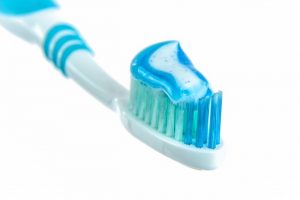Research, Health, Green - Natural - Safe
Trend topic: Microplastics in cosmetics

Jul
Advertising shows us how: Manufacturers advertise with "small, soft beads soaked in essential oils" that "mechanically" clean the skin and teeth. The consumer can - and should - freely interpret exactly what this means. But no one thinks about the fact that these are tiny plastic particles that can find their way into our bodies and the environment.
What is microplastic and why is everyone talking about it?
Shower gels with microbeads, scrubs with microbeads and toothpaste with the "Pearl System" promise that the new technology effectively cleanses the skin and teeth with the tiny miracle beads. But what you only find in the small print, and even then only if you can read and understand INCI lists properly: The beads are made of plastic and can make up to 10% of a product.
.
What is microplastic and what does it contain?
Microplastic is the umbrella term for particles or fibres with a diameter of less than 5mm. Microbeads in cosmetic products almost always have a diameter of less than 1mm.
Microplastics are a popular ingredient in a range of products because they are very cheap and easy to process. Microplastic particles are usually found in body and face scrubs or toothpastes, which can contain thousands of the tiny plastic beads. Caution is also advised with shower gels, which often advertise shower beads that are supposed to cleanse the skin particularly effectively. Microplastic particles end up in groundwater, animals and food via cosmetics.
What is the purpose of microplastics in care products?
Products that rub during application and thus attack the top layer of skin or plaque are perceived by us as particularly cleansing. Toothpaste with small plastic beads removes plaque more effectively, while intensive scrubs remove dead skin cells and make the skin appear softer. Manufacturers advertise deep-cleansing care thanks to "microbeads" - a term that makes consumers believe in a natural ingredient.
People, animals and the environment
Studies show that some toothpastes (especially those with the so-called "Pearl System") consist of up to 10% of plastic and plastic particles. Some of these enter our bodies during use and are excreted again. No truly negative consequences for the body are known or proven, but the damage to our environment is all the greater.
Wastewater treatment plants are used to try and filter the microparticles out of the groundwater. However, this is only partially successful, as some of the plastic particles are so small that they slip through any filter and remain in the water. The scale of the problem is alarming: in the state of New York, for example, around 20 tonnes of microplastics are released into the water every year.
Once in the groundwater, microplastics cause considerable damage: The beads can be tracked into the digestive systems of animals. There they clog the stomachs, cause inflammation and can even lead to death.
But it is not only the animal world that is affected by microparticles. Tonnes of plastic also accumulate in sewage sludge, which is formed during wastewater treatment and is later used as fertiliser in agriculture. This means that microplastic particles end up back in the groundwater and also in the plants themselves. The idea that you might find the plastic particles from your shower gel on your own plate is no longer so absurd: tests by the German consumer magazine ARD have shown that plastic particles are already present in detectable quantities in milk, honey and even treated tap water.
What can we do about it?
If you have read this article up to this point, the first step has already been taken: you have informed yourself and are now better able to understand which products, whether cosmetics, cleaning products or food, may contain microplastics. Switching to natural and, above all, certified organic food and cosmetics will help you to avoid microplastics.
Tip: In cosmetic products, microplastics are labelled as "polyethylene" in the list of ingredients. The top priority is to be careful with products that advertise microbeads or the Pearl System.
The good news is that there are many alternatives. Natural scrubs, salt, sand, clay or ground nutshells are just as suitable as cleansing aids and are contained in many natural cosmetic products. And natural cosmetic toothpaste also works perfectly without microplastics.